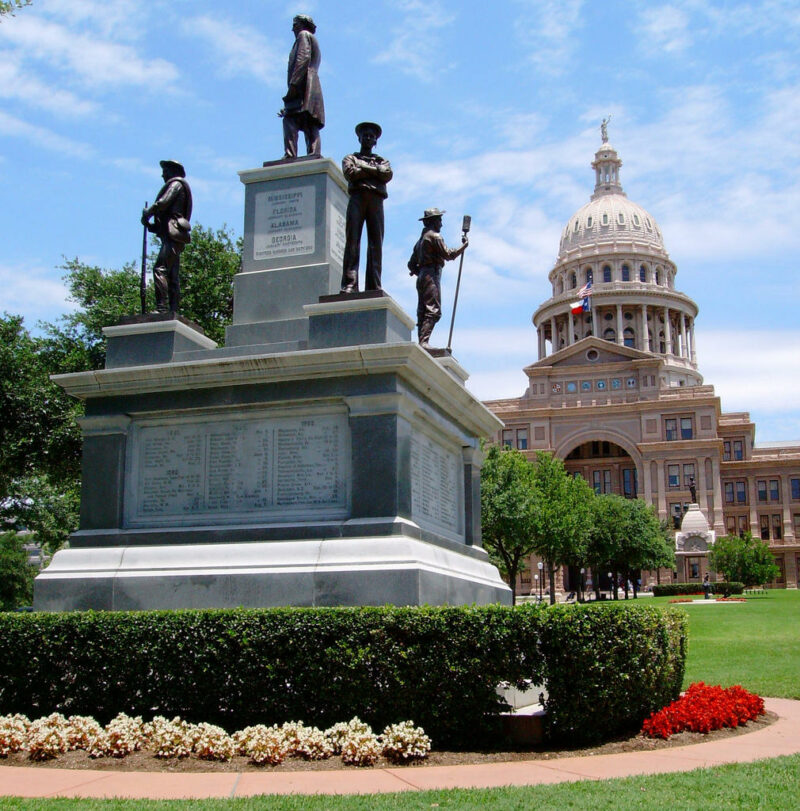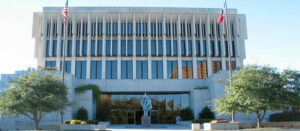Executive Summary:
- This is the first update in a two-part series covering Senate and House budget plans for TRS this session.
- The TRS fund has met the standard for actuarial soundness!
- Any cost-of-living increase will have to go through the Texas Legislature.
- The TRS-Care fund won’t require additional funding this session.
- TRS is seeking to add 25 new investment team members.
On Monday, February 22, the Senate Finance Committee met to discuss budget items for several state agencies, including the Teacher Retirement System of Texas (TRS). The committee is chaired by longtime state Senator Jane Nelson (R – Flower Mound).
The Legislative Budget Board (LBB) presented its proposed recommendations for funding TRS, with all funds totaling $6.2 billion. The figure represents an increase over the previous legislative session, which is primarily due to the passage of Senate Bill 12 in 2019. SB 12 increased contribution rates to the pension fund. Over time, the state contribution will increase from 6.8 percent to 8.25 percent by 2024, the school district contribution from 1.5 percent to 2 percent by 2025, and the active employee contribution from 7.7 percent to 8.25 percent by 2024.
The Pension Fund is Actuarially Sound
TRS Executive Director Brian Guthrie gave a few brief remarks about the system, which presently serves approximately 445,000 retiree members and 1.2 million active members. He reminded the committee’s members that 96 percent of TRS members do not participate in Social Security, making a TRS annuity the only source of retirement income for the majority of TRS members.
Guthrie shared positive news about the fund’s status. “We are actuarially sound,” said Guthrie. He said that the pension’s funding period is now 27 years. The fund has $176 billion in assets and the anticipated funding period will likely go down to 26 or even 25 years as of the next valuation, which will occur at the end of February.
As members of the Texas Retired Teachers Association (TRTA) know, the TRS pension fund must be actuarially sound with a funding period of 31 years or less in order for the Legislature to approve a cost-of-living increase for retirees. TRTA is actively working with legislators to file bills that provide a much-needed COLA for our retired school personnel.
Senator Joan Huffman (R – Houston) asked how a COLA would impact the pension fund.
“This is something we have looked at,” said Guthrie. “My answer depends on how that increase is financed.”
He explained that if the Legislature provides the funding for the COLA upfront (as they did for 13th check for retirees in 2019), the overall cost is less. Financing a COLA through the system is a several billion-dollar cost that would be amortized over time. “Both are legitimate options, but one is more expensive than the other,” said Guthrie.
Senator Eddie Lucio (D – Brownsville) and several other members of the Senate Finance committee made impassioned statements on finding a path to helping TRS retirees.
TRTA will cover the cost-of-living adjustment discussion and our view of this important item in an upcoming Inside Line article. We want our members to be fully informed on all the comments made at Senate Finance, as well as the upcoming House Appropriations Committee hearing that concluded earlier today, Tuesday, February 23, 2021. Stay tuned for that special report.
TRS-Care is in a Healthy Financial Position
Guthrie also reported that for the first time in nearly a decade, TRS doesn’t require supplemental funding for TRS-Care. He cautioned that income for the program does not match outflow and the balance will reduce over time and create another shortfall in 2 to 6 years. Premiums for retirees increased in 2018 but will remain the same in 2021.
Senator Huffman asked if any additional reforms are needed for TRS-Care. The plan underwent significant changes in 2017 meant to help sustain the plan for a longer period of time.
Guthrie said that those changes, along with switching to new providers in 2021, have helped improve the fund’s balance.
Senator Lois Kolkhorst (R – Brenham) asked for a deeper explanation for the plan went from a deficit to solvency.
Guthrie said the change was a result of a “confluence of events.” He said that the plan saved a lot of money when 30,000 people left due to increased costs. He said that the procurement of new health care providers, which saves the plan $700 million over time, went into effect. Finally, he said that “our overall experience has been very good the last couple of years.”
TRS Bonuses, Indeed Tower Lease Come Under Fire
Director Guthrie’s overall comments also included a deeper look into the TRS budget request asking for an exceptional budget item to add 25 more staff members to the investment team at a cost of $5.4 million over the biennium. This increase in staff would be paid for out of the pension trust fund. The agency asserted that the additional staff would support the investment team and policy. Investment returns represent 63 percent of the payments TRS provides to retirees.
After these comments, a contentious conversation ensued over the issue of TRS investment staff bonuses and the lease of space at the Indeed Tower in downtown Austin.
Senator Huffman asked how bonuses for investment staff are justified. Guthrie said that bonuses are paid out when the team has exceeded their benchmarks. “We believe this incentivizes our investment staff to overperform,” he added.
Senator John Whitmire (D – Houston) asked what investment staff team members earn as base pay. Guthrie replied that base pay for a mid-level team member is between $200,000-225,000 per year and as high as $350,000 for a senior member of the team. Other Senate members commented that TRS is competing for talent in a highly competitive field and that salary and bonus options for TRS were necessary to keep TRS positions marketable.
Whitmire asked pointedly, “Why do they need to be incentivized to do their job?”
He also pressed Guthrie about the status of the lease at the Indeed Tower in downtown Austin, which TRS is still attempting to sublease. A pause in the real estate market has hampered that effort, said Guthrie.
Senator Whitmire pursued the issue and pointed out that “. . . your retirees are alarmed about it!”
Guthrie answered that TRS had done a significant cost benefit analysis and determined that the lease was the right plan for the trust fund. He also conceded that the optics of the lease were not good and the Board pivoted to find space for their employees in a less costly building (eventually choosing to stay in their current leased offices in downtown Austin).
Senator Eddie Lucio (D – Brownsville) also expressed concern. “We see the face of the retirees each day. Can you imagine what has happened to them because of the pandemic? They can’t live on the little check they get monthly,” Lucio said.
“The people I represent in my district and people just like them…are getting the short end of the stick here,” Lucio added.
The Indeed Tower discussion was intense and probing, and it led to many more questions and statements that TRS members want and deserve to know more. TRS has said that laws governing how they invest in certain assets prevents them from sharing all the details about those investments. Additional comments were made about changing these laws so that TRS members are not in the dark about high profile decisions such as this.
While it had been widely reported on and something that TRS had not confirmed or denied over the past year, the public disclosure that TRS is a major investor in the Indeed Tower building was also made. TRS had not publicly disclosed their ownership position until the Senate Finance Committee questions yesterday.
Senator Charles Schwertner (R – Georgetown) said that his work on the Sunset Committee and the Senate Finance Committee was to ensure that the pension plan was solvent. He expressed concerns about the system’s long-term investment return, which is 5.9 percent over a 20-year period. Schwertner encouraged TRS to think more about strategies in the event of major market declines.
Senator Huffman reminded the members of the committee, as well as TRTA and all TRS members, that the TRS pension fund has grown by $30 billion since the onset of the COVID-19 pandemic, adding that TRS is in the forever business.
TRTF Tutor Program
Senator Royce West (D – Dallas) asked about the Texas Retired Teachers Foundation (TRTF) Tutor Program. Retirees who work as tutors through the program are considered independent contractors, but some issues have been raised with contracting with them through school districts. Guthrie said a solution can be found this session so that their work as tutors does not count against the retirees’ annuities.
Learn more about this exciting new program here!
TRTA Executive Director Provides Testimony
Tim Lee, TRTA’s Executive Director, provided testimony to the committee. He thanked the Lt. Governor and the Senate Finance Committee for their proposed budget that FULLY FUNDS SB 12 (the hallmark funding plan for TRS passed last session) and keeps TRS actuarially sound, as well as for fully funding the state share for the TRS-Care program. He also expressed that all TRS members can be proud of the Senate Finance Committee for their dedication and deep interest and commitment to retired and active educators’ long-term retirement security.
Senator Larry Taylor (R – Friendswood) asked Lee how the TRTF Tutor Program is doing. Lee said that there are several hundred tutors across Texas currently involved in the program and is looking to expand that number. TRTA has a vital role to play in helping Texas students, parents, teachers, and schools recover from the effects of this pandemic. Virtual tutoring is a great way for our retirees to give back and earn more income. State elected leaders see the value in this program and we are eager to develop it further for the betterment of all Texans.
Thank You
Thank you for being a member of TRTA! Be sure to download the TRTA app to receive all of the latest legislative updates.




